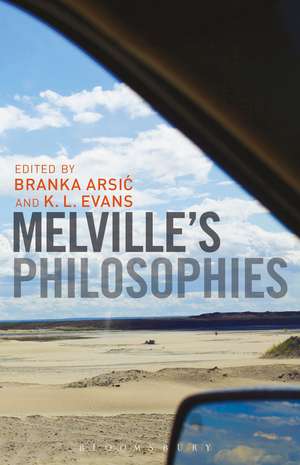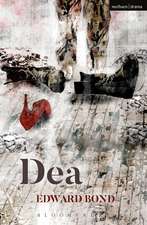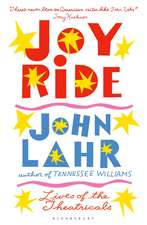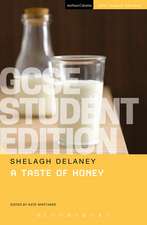Melville’s Philosophies
Editat de Professor Branka Arsic, Dr. K. L. Evansen Limba Engleză Paperback – 26 dec 2018
| Toate formatele și edițiile | Preț | Express |
|---|---|---|
| Paperback (1) | 235.20 lei 6-8 săpt. | |
| Bloomsbury Publishing – 26 dec 2018 | 235.20 lei 6-8 săpt. | |
| Hardback (1) | 836.31 lei 6-8 săpt. | |
| Bloomsbury Publishing – 17 mai 2017 | 836.31 lei 6-8 săpt. |
Preț: 235.20 lei
Preț vechi: 299.37 lei
-21% Nou
Puncte Express: 353
Preț estimativ în valută:
45.01€ • 46.73$ • 37.53£
45.01€ • 46.73$ • 37.53£
Carte tipărită la comandă
Livrare economică 22 martie-05 aprilie
Preluare comenzi: 021 569.72.76
Specificații
ISBN-13: 9781501347504
ISBN-10: 1501347500
Pagini: 424
Ilustrații: 53 b/w illustrations
Dimensiuni: 152 x 229 x 25 mm
Greutate: 0.56 kg
Editura: Bloomsbury Publishing
Colecția Bloomsbury Academic
Locul publicării:New York, United States
ISBN-10: 1501347500
Pagini: 424
Ilustrații: 53 b/w illustrations
Dimensiuni: 152 x 229 x 25 mm
Greutate: 0.56 kg
Editura: Bloomsbury Publishing
Colecția Bloomsbury Academic
Locul publicării:New York, United States
Caracteristici
Melville emerges as a very relevant thinker for contemporary philosophical concerns, such as the materialist turn, climate change, and post-humanism
Notă biografică
Branka Arsic is Charles and Lynn Zhang Professor of English and Comparative Literature at Columbia University, USA. She is the author of Bird Relics, Grief and Vitalism in Thoreau (Harvard, 2015), On Leaving, A Reading in Emerson (2010), Passive Constitutions or 71/2 Times Bartleby (2007). She is co-editor (with Cary Wolfe) of The Other Emerson: New Approaches, Divergent Paths (2010) and editor of The American Impersonal (Bloomsbury Academic, 2014).K. L. Evans is Visiting Scholar in the Department of English at Cornell University, USA. Previously she was Associate Professor of Literature and Philosophy at Yeshiva University in New York City. She is the author of Whale! (2003) and One Foot in the Finite: Melville's Realism Reclaimed (forthcoming 2017).
Cuprins
List of FiguresIntroduction: Reconstructing MelvilleBranka Arsic (Columbia University, USA) and K. L. Evans (Cornell University, USA)PART ONE: WORLD-MAKING1. Gospel CetologyK. L. Evans (Cornell University, USA)2. Billy Budd, Billy Budd Stuart Burrows (Brown University, USA)3. Science, Philosophy, and Aesthetics in "The Apple-Tree Table"Maurice S. Lee (Boston University, USA)4. Clarel, Doubt, DelayPaul Hurh (University of Arizona, USA)PART TWO: LOVE STORIES5. The Lawyer's Tale: Preference, Responsibility, and Personhood in Melville's "Story of Wall-street"Rachel Cole (Lewis & Clark College, USA)6. Pierre in LoveKenneth Dauber (SUNY-Buffalo, USA)7. Phenomenology Beyond the Phantom Limb: Melvillean Figuration & Chronic PainMichael Snediker (University of Houston, USA)8. "Learning, unlearning, word by word": Feeling Faith in Melville's ClarelRhian Williams (University of Glasgow, UK)PART THREE: ARTS9. Fateful Gestures: On Movement and the Maneuvers of Style in "Benito Cereno"James D. Lilley (SUNY-Albany, USA)10. Melville, Poetry, PrintsSamuel Otter (University of California, USA)11. A Final Appearance with Elihu Vedder: Melville's VisionsElisa Tamarkin (University of California, USA)12. La téméraire littéraire: Reckless Adaptation in Pierre and Pola XPaul Grimstad (New York University, USA)PART FOUR: COMMUNITIES12. Melville's LeviathanPaul Downes (University of Toronto, Canada)13. Bartleby's ScreenColin Dayan (Vanderbilt University, USA)14. Melville's MisanthropologyMichael Jonik (University of Sussex, UK)15. Desertscapes: Geological Politics in ClarelBranka Arsic (Columbia University, USA)ContributorsIndex
Recenzii
This collection does not stress Melville as philosopher or Melville's relation to philosophers (although Paul Downes does consider Melville and Hobbes); rather it looks at the philosophy latent in Melville's creative vision. Though the contributors range from veterans (Kenneth Dauber, Colin Dayan) to more recent voices (Elisa Tamarkin, Samuel Otter) to the well-known, consummately idiosyncratic Arsic, the essays share a common dimension: the synchronic. In so many cases in which development appeared possible, a wise reflectiveness reveals repetition. In his essay, Michael Jonik says The Confidence-Man should make one "remain ever wary of the advance of geniality." James Lilley argues that Amasa Delano's dancing in Benito Cereno is "fragmented gestures" necessarily "fateful and failed." Rhian Williams reads the late Holy Land epic Clarel as figuring "religiosity through repetition"; in their essays on Clarel, Arsic and Paul Hurh have different religious stances but agree that existence is naught but a "continuous, processional concept" (as Arsic writes). Overall the book gives a heartening sense of movement into a world where, as Evans puts it in the opening essay, one is "fully at home" but "never in control." Summing Up: Recommended. Lower-division undergraduates through faculty.
By engaging Melville's singular ways of thinking, the contributors to Arsic and Evans' 'untimely' collection show how Melville's writings anticipate and clarify the philosophical stakes of intellectual preoccupations-speculative materialism, new formalism, relational aesthetics, object-oriented ontology, inoperative communities, ecocriticism-we recognize as our own. In so doing they render Melville's Philosophies indispensable to thinking contemporaneity.
It's easy to imagine that Melville would have delighted in the creative, thoughtful, and daring essays collected in Melville's Philosophies. With a striking originality, erudition, and insight, these essays, in the spirit of their subject, deftly unmap conceptual certainties and open unanticipated wonders in Melville's philosophical visions. With topics diverse as signs and subjectivity, empiricism and the unobservable world, doubt and impersonality, unreciprocatable love and community ethics, the immateriality of pain and feeling faith, prosthetic sovereignty and the politics of new beginnings, Melville's Philosophies gives us an exhilaratingly re-imagined Melville and, in the process, gives us much-needed insight into contemporary questions of belief and attachment, materiality and ethics, aesthetics and sensation, and the limits of justice.
By engaging Melville's singular ways of thinking, the contributors to Arsic and Evans' 'untimely' collection show how Melville's writings anticipate and clarify the philosophical stakes of intellectual preoccupations-speculative materialism, new formalism, relational aesthetics, object-oriented ontology, inoperative communities, ecocriticism-we recognize as our own. In so doing they render Melville's Philosophies indispensable to thinking contemporaneity.
It's easy to imagine that Melville would have delighted in the creative, thoughtful, and daring essays collected in Melville's Philosophies. With a striking originality, erudition, and insight, these essays, in the spirit of their subject, deftly unmap conceptual certainties and open unanticipated wonders in Melville's philosophical visions. With topics diverse as signs and subjectivity, empiricism and the unobservable world, doubt and impersonality, unreciprocatable love and community ethics, the immateriality of pain and feeling faith, prosthetic sovereignty and the politics of new beginnings, Melville's Philosophies gives us an exhilaratingly re-imagined Melville and, in the process, gives us much-needed insight into contemporary questions of belief and attachment, materiality and ethics, aesthetics and sensation, and the limits of justice.











